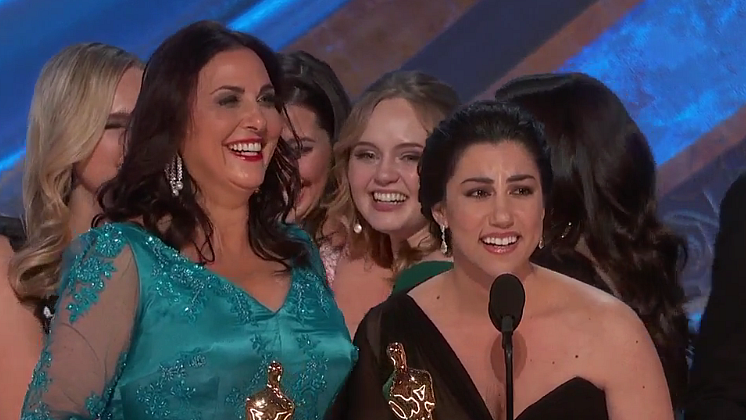India-set film around menstruation wins an Oscar, Spike Lee’s ‘BlacKkKlansman’ on racism too is a winner
Issue-based films found a considerable space in 91st Oscars Academy Awards ceremony

Period. End of Sentence, an India-set film on the taboos around menstruation and featuring the real 'Pad Man', picked up an Oscar in Documentary Short Subject category at the 91st Academy Awards ceremony.
The film, backed by Indian producer Guneet Monga's Sikhya Entertainment, is about women in India fighting against the deeply rooted stigma of menstruation and delving upon the work of real life 'Pad Man' Arunachalam Muruganathan.
Directed by award-winning Iranian-American filmmaker Rayka Zehtabchi, the film is created by The Pad Project, an organisation established by an inspired group of students at the Oakwood School in Los Angeles and their teacher, Melissa Berton.
The 26-minute film follows girls and women in Hapur in northern India and their experience with the installation of a pad machine in their village. It was pitted against Black Sheep, End Game, Lifeboat and A Night At The Garden.
“I can't believe a film about menstruation just won an Oscar," Zehtabchi said as she got up on the stage to accept the honour.
Zehtabchi and Berton accepted the award with their inspiring words. "I'm not crying because I'm on my period or anything."
A Netflix documentary, "Period..." is executive produced by Guneet Monga and is co-produced by Monga's Sikhya Entertainment, which has backed films like "The Lunchbox" and "Masaan". The Indian producer even got a huge shout out from the team while accepting the award.
"Guneet Monga - know that you have been empowering women all over the world fight for menstrual equality," Zehtabchi said.
Thrilled after the win, Monga tweeted: "We won! To every girl on this earth... know that you are a goddess... if heavens are listening... look MA we put @sikhya on the map."
Berton dedicated the award to her school, saying "the project was born because her students in LA and people in India wanted to make a human rights difference".
"I share this award with the Feminist Majority Foundation, the entire team and cast. I share this with the teachers and students around the worlds - a period should end a sentence, not a girl's education," she said.
Meanwhile, filmmaker Spike Lee was elated when "BlacKkKlansman" was announced as the Oscar winner for Adapted Screenplay at the 91st Academy Awards. He urged people to be "on the right side of history".
Lee paced towards the stage and hugged presenter Samuel L. Jackson in what was an effusive reaction to the award announcement.
Making a political comment, Lee, whose film takes on racism in the US, said: "The 2020 presidential election is around the corner. Let us all mobilise, let's all be on the right side of history. Make the moral choice between love versus hate."
He received a standing ovation. Written by Charlie Wachtel and David Rabinowitz and Kevin Willmott and Spike Lee, the film is based on a book by Ron Stallworth.
The crime drama is set in 1970s Colorado Springs, and follows the first African-American detective in the city's police department as he sets out to infiltrate and expose the local chapter of the Ku Klux Klan.
Before the Adapted Screenplay honour, Nick Vallelonga, Brian Currie and Peter Farrelly won the Best Original Screenplay for "Green Book".
In the animation film category, Spider-Man: Into the Spider-Verse has won the Oscar for best animated feature at the 91st Academy Awards.
Follow us on: Facebook, Twitter, Google News, Instagram
Join our official telegram channel (@nationalherald) and stay updated with the latest headlines
